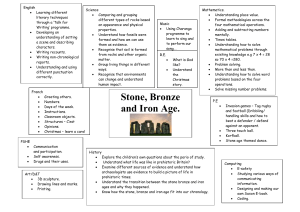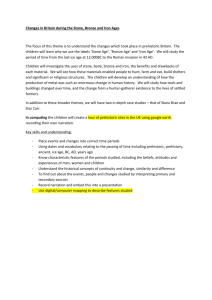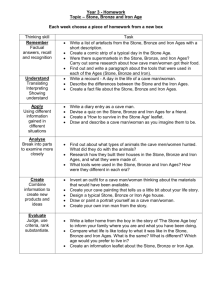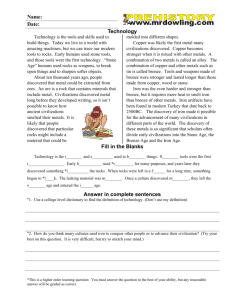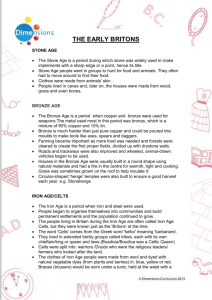The Three-Age System
advertisement
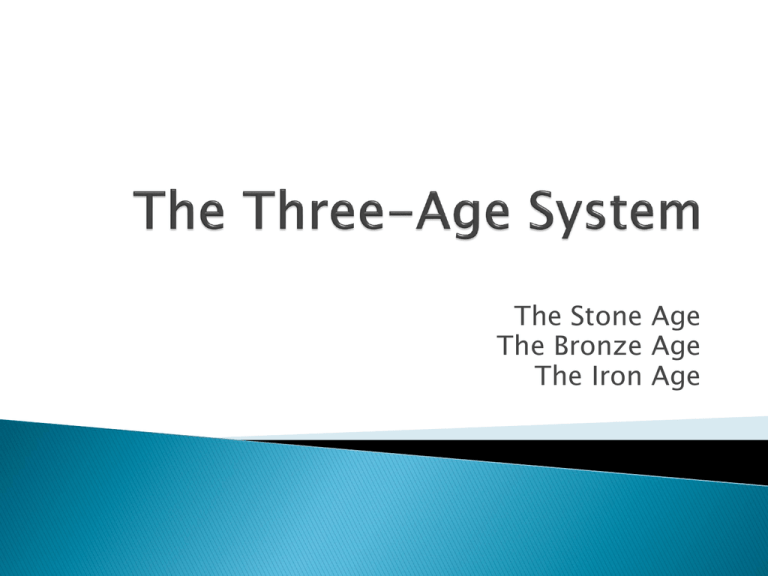
The Stone Age The Bronze Age The Iron Age http://www.youtube.com/watch?v=Seina_bhJ0&list=UUvHAGCWCALwenR2MZuSo_xQ&in dex=17&feature=plcp The why, in this case, places a heavy emphasis on the technology available to emerging civilizations. That technology can be described and placed chronologically by using the Three-Age System. Greek poet Hesiod’s Works and Days defines the Ages of Man: Golden, Silver, Bronze, Heroic and Iron Christian Jürgensen Thomsen (1788-1865) This system is now used to categorize the ages of invention and progress before the Dark Ages Based on tool use, but also a way to frame the evolution of man and society Reliable, but ambiguous The Ages tend to overlap and are often disputed by experts In some areas of the Earth, like Africa, certain groups went straight from the Stone Age to the Iron Age. Rare groups, such as isolated Amazonian tribes in Brazil, have not yet progressed past the Stone Age. Prehistoric cultural stage, or level of human development, characterized by the creation and use of stone tools. Before the earliest civilizations, beginnings of Sumerians A period in a civilization's development when the most advanced metalworking consisted of smelting copper and tin into bronze. Babylonians Period in the development of industry that begins with the general use of iron in tools and other implements. Ancient Greece That’s up to you to find out! Stone Age: Cameron, Lindita, Andrea, Brian, Phil, Dan, Bobby, Quinn, Kellie Bronze Age: Lauren, Mike, Chris R., Melanie, Matt L., Lindsey, Krista, Jason, Chris S. Iron Age: Ryan, Matt Malburg, Kristen, Josh, Matt Mount, Tim, Anna, Jim Red = World Events; Blue = Age Events; Green = How People Lived During the Age World Events: The Ages span across continents and dynasties, wars and legislation. Age Events: Each Age is divided into subcategories that have their own dates and significant happenings. How People Lived: New technologies led to different cultures and ways of living. How did people live during each of these ages?

